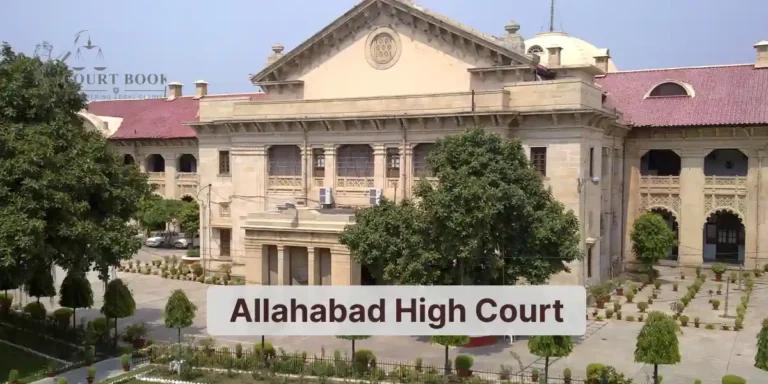In a significant ruling, the Allahabad High Court has drawn a clear distinction between being a witness to a document and executing it. The court held that merely witnessing a lease deed does not amount to accepting its terms, unlike signing and executing it.
The case revolved around a dispute over the lease deed submitted by respondent no.3 for a retail outlet dealership. The petitioner, Veer Bahadur Singh, challenged the selection of respondent no.3, alleging non-compliance with the mandatory provision under Clause 4(vi)(a) of the Brochure (June 2023).
Case Background
Respondent no.3 was allotted the dealership through a draw of lots for a property located at site no. 1375. However, the petitioner filed a complaint alleging that the lease deed submitted by respondent no.3 was invalid since only one co-owner had signed it, while the other co-owners had merely acted as witnesses.
Clause 4(vi)(a) of the Brochure clearly states:
"If the offered land is on a long-term lease and there are multiple owners, then the lease deed should be executed by all co-owners of the offered plot. In case the lease deed is not executed by all co-owners, such lease deed shall be treated as invalid."
Read also: Allahabad HC Petition Opposes Oath Ceremony of Justice Yashwant Varma, Cites Ongoing Probe
Despite this, the respondent authorities rejected the petitioner’s complaint and accepted the lease deed. The petitioner then approached the High Court, seeking relief.
- Petitioner's Argument:
- The lease deed was signed only by one co-owner.
- Other co-owners merely acted as witnesses, which did not satisfy the mandatory requirement under Clause 4(vi)(a).
- The respondent had submitted two lease deeds—one on 24.07.2023 and another on 18.09.2023. The second deed was treated as the final one, even though it was not an amendment of the first but a fresh document.
- Respondent’s Argument:
- The purpose of Clause 4(vi)(a) was only to prevent future litigation.
- Since the other co-owners signed as witnesses, they had effectively agreed to the lease deed.
- Both lease deeds were submitted before the deadline, so the final one was considered valid.
Read also: Judges Must Remain True To Law: Justice Chandra Dhari Singh Bids Farewell To Delhi High Court
The bench comprising Justice Shekhar B. Saraf and Justice Vipin Chandra Dixit found merit in the petitioner’s argument and made key observations:
- No Proper Justification for Accepting the Second Lease Deed:
- The court noted that the respondent authority had not provided any valid reason for accepting the second lease deed while the first lease deed was still in existence.
- A second lease deed cannot be executed unless the first lease deed is officially canceled.
- Executing a Document vs. Witnessing a Document:
- The court firmly rejected the argument that witnessing a document amounts to execution.
- Quote from the Judgment: “There is a huge difference between executing a particular document and being a witness to the same document. The witness does not in any manner agree to the terms and conditions in the said lease deed, while a person who executes the document agrees to the terms and conditions.”
- Clause 4(vi)(a) is Mandatory, Not Advisory:
- The court ruled that all co-owners must execute the lease deed to comply with the mandatory provision.
- Previous judgments, including those in Rahul Singh v. Indian Oil Corporation Ltd. and Akshay Kumar Jaiswal v. Union of India, were cited to reinforce this point.
- Respondent’s Argument Lacked Legal Basis:
- The court dismissed the claim that merely witnessing the document was enough.
- The cited Supreme Court judgment (Poonam Verma v. Delhi Development Authority) was deemed irrelevant to this case.
Based on these findings, the High Court quashed the allotment granted to respondent no.3 and directed the authorities to conduct a fresh draw of lots for the property in question.
Read also: Supreme Court Defers Ranveer Allahabadia's Passport Plea; Investigation Nears Completion
Court’s Final Order:
“The impugned order dated 18.11.2024 is quashed and set aside. The authority is directed to cancel the allotment made to respondent no.3 and carry out a fresh draw of lots in accordance with the law.”
Case Title: Veer Bahadur Singh v. Hindustan Petroleum Corporation Limited And 2 Others [WRIT - C No. - 169 of 2025]















